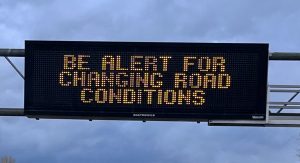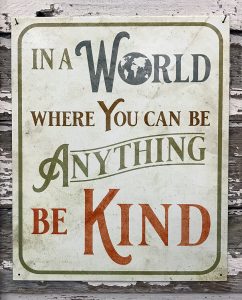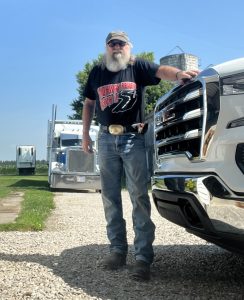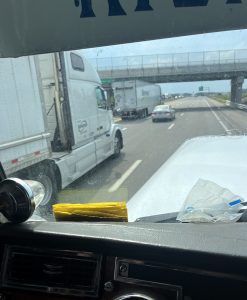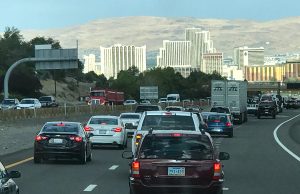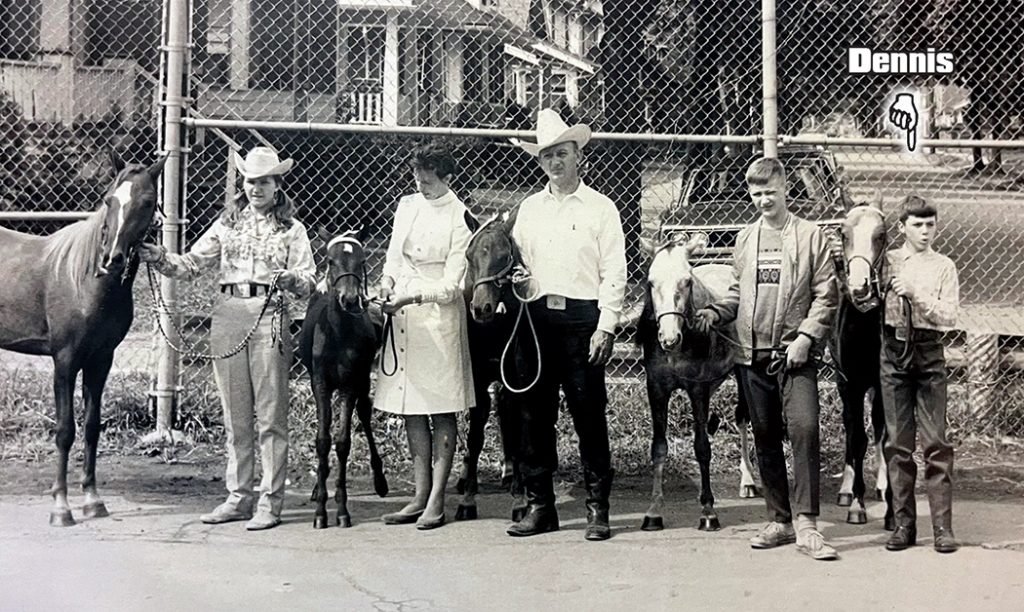
Here it is August already and the summer is rushing past faster than the tilt-a-wheel down at the county fair. I always associate this month with the activities found around the rural towns I grew up in. August was the time when young people were given the chance to act grown up. That meant shouldering responsibilities and accepting the care and security of farm animals away from the farm, often without the guidance of their parents. Back when I was a teen (circa 1970), this was the first right of passage when young men stretched their horizons and young girls painted them a pretty picture. True to human nature, boys will be boys, so the saying goes.
I remember the time leading up to fair week as months of hard work. My family raised livestock on our farm – we had cattle, horses, pigs, and too many other small animals to mention. And, along with the animals, we grew prize winning vegetables and field crops. The fair was about more than just bragging rights – we showed our animals and displayed the rest in both 4-H and open classes. I learned at an early age I could do anything I set my mind to. There are not many places a child can compete with adults and have a fighting chance, but once a year that happened at the county fair, when locals, young and old, competed for prizes and money.
This was a serious business at our house since much of the family budget was derived from the earnings collected after entry fees were paid and expenses were removed. It took days to pack, transport, and deliver everything from a pen of three prize pigs, to rabbits and ducks, a few horses, and that didn’t do justice to the farm produce and crops we displayed. The fair may have only been six days, but the preparation and labor required to prepare covered the entire year. This is a shout-out to all the 4-H alumni reading this article. I remember hearing the refrain… building the leaders of tomorrow. We had no idea back then that many of the choices we would make later in life would come directly from the experiences we had as kids at the fair.
I was somewhat of a troubled kid, not that I looked for trouble, it just sprang up around me. When I turned thirteen, it was my year to stay in the dorms at the fairgrounds. My parents weren’t convinced I was ready. “What could go wrong,” my supporters said, “Lots of kids go every year and nothing happens to them.” After much consternation and some pleading, they relented, and I was sent. How was I to know the place would catch fire the second night. I had nothing to do with a prank gone wrong, but my folks could never be sure, so that was the last time I stayed overnight at the fair. I guess as life played itself out, where I stayed at night didn’t make that much of a difference. In fact, it may have given me more chances to prove my independence and thus helped me to pursue the career I chose.
You may be wondering how I turned that misfortune into my life’s work. I’m reminiscing about an event that took place over 50 years ago, yet I’m still seeing the people who believed in me then, and those were the ones who gave me hope. The chance to do right and make good on my actions. The first year I was too young to drive back and forth to the fair myself, so I had to get rides there and back. This often meant bumming rides with the older kids and keeping them out of trouble (a little brother in the car has a sobering effect on late night rides with your girlfriend). I’m not sure, but my brother and I may have stolen dad’s Case 830 tractor and driven it the 12 miles from home.
Sometimes a person just has to do whatever it takes to do the job. That required me to be the last one out at night and the first one up there in the morning. So, dependability and time sensitivity became a hallmark – it’s a lost art in our kids today, but back then I found I could get paid cash money if I did barn chores for some of the more well to do kids. By the time they got around to showing up I had already fed the animals, cleaned their stalls, and was gone. I have never been one to shy away from work. I’m sure they were more concerned with their leisure time and sleeping in than they were with how much they paid me. I can’t remember what the rates were, but it was never about how much money I had. But if I had some, I had options. Two or three dollars to a thirteen year old kid in 1970 was a fortune!
As I grew older and time went on I promoted my abilities – and the greatest one was my ability to adapt. I benefited from the experience most would have considered a misfortune, but people saw me move livestock at the auctions, they watched me interact with my customers, they saw me handling other people’s money, and doing many of the duties of someone much older than myself. I was considered dependable, and through the association of others, the kids who “used my service” later became the men and women in our community who run many of the local service industries.
By the time I was old enough to drive myself, I had a car, so I didn’t need to borrow dad’s, and I had a job, so there was gas in the tank. It may not have been full, but back then $5.00 went a long way. My first paid driver’s job was in a Volkswagen bug, doing taxi service for a price. Some of us have been getting paid to move things since we were very young, and those of us who consider ourselves to be professional drivers, take it quite seriously.
I got a little long winded on that first part, but what I really want to talk about is leaving some space. What got me to thinking about the county fair was an article I read about Johnny Cash and his style of playing the guitar. Someone once said he learned three chords on the old flat top box and, by changing up the spacing of those chords, built a lifelong career as one of country music’s most loved artists. In case you are wondering, the first time I saw him perform was at the county fair. I’m sure I earned the price of admission shoveling road apples, but I got to see the show most of my friends only heard about, because they had to stand outside the fence.
We all know Johnny Cash sang songs about trucking, and my favorite is still “I’ve Been Everywhere.” He was famous for his black 359 Pete that pulled the show trailer back in the day. Many drivers claim to have been passed by none other than “The Man in Black” strolling in the hammer lane. Rumor has it he would get bored and didn’t like to ride in the bus, so he would sometimes drive the bus and, other times, he would drive his rig. Then others, me included, have listened to some singer belting out a ballad on the CB radio. Back in the eighties and nineties, it was common for people to sing on the radio, and some of them were very good. I can’t say I saw him or the truck, but Lord it sounded like him. In my heart, I want to believe I was there, and he was just hanging out with the guys. If ever there was an artist who could have been one of us, “The Man in Black” would have been that guy.
Johnny has been gone for a few years now, but he still sends us messages. In case you missed it, the message is in the music. Now I’m no musician, I can’t play any instrument, and given half a chance, I’d get the radio out of tune, but what’s this got to do with trucking? Well, everything! A musical score is composed on a staff, and the notes are arranged in an order with the appropriate spaces and timing to keep the conductor on course, and the melody will always be the same, provided no one crowds the notes or pushes the spaces. If the timing is off, the notes will all run together. It’s all about the timing!
So, think of the interstate system as the staff and the vehicles in each lane as the notes. It’s all about the timing or the space between each vehicle. As we drive down the road of life, each of us should be asking these basic questions: are you leaving enough room for slower traffic, and are you in an appropriate lane for your speed? Is it really necessary that you need to drive like it’s the Indy 500 and you’re the next pace car?
August is commonly the month when families travel to and from their vacation destinations. They are making memories at the speed of traffic, so be certain you don’t become part of their summertime tale. Can you stop your truck in the distance between you and the next car or that pickup towing a camper? If I were to take an educated guess, the answer is no! Many of today’s trucks are piloted by someone who is probably not driving the truck, they are more of a passive rider, these days. Too many of these drivers are just holding the steering wheel and listening to some distraction on the cell phone. There’s a good chance he or she is semi reclined and relaxing, at 75 mph, in the far left lane, with a curtain covering their left side window to block the sun. Does this sound like you – are you “that” guy? Well, don’t be!
We have all seen him or her. They are riding the bumper of the last car in front of them and, given the chance, they will pass in a construction zone. For some reason they don’t recognize speed limits for hazardous conditions or, if they do, they disregard caution with reckless abandonment. Careless and reckless driving is their norm. These so-called drivers aren’t the least bit concerned about crashing or running someone off the road, as long as it doesn’t slow them down. And if they get stopped or ticketed by law enforcement, that doesn’t faze them, either. They will get a different truck, from another company, and just continue to wreak mayhem until they lose their license, and then just walk away from the industry.
Okay, I may have been a little heavy handed there, but every single day I’m surrounded by stupid and his truck. I’m one of those drivers who still enjoys his job, and I try hard to educate the motoring public on the virtues of professional drivers. Just for the record, if I ever call you a Professional Driver, consider it a compliment. There are still a few of us left, and we are not all old guys. Some are the very ones you see in this magazine every month, dressed to impress. If you didn’t know, this was once a proud profession. People looked up to the men and women of the highway and called us “Knights of the open road.” Why do you think motorists still do the arm pump? I get as much enjoyment from a horn blast as they do.
We cannot hear their conversations but know that our actions will set the tone and influence the attitude of our motoring compatriots. I secretly hope some child will get up in front of his or her class and talk about their summer vacation by mentioning the guy driving a big, shiny, blue and white semi who honked his train horns and waved. Who knows, they may find my picture in a 10-4 Magazine they picked up at the truck stop when dad got fuel.
I don’t start each day worried about where I’m going, but instead wait until each night to see where I went. The difference is in the expectation and the opportunity to be positive. I no longer worry about when I’m going to get there, wherever that is, because I intend to arrive alive! Wow, what a concept. There was a time when drivers had more control over their schedules. If the load is late by no fault of their own, then someone should have shipped it sooner. I’m not going to risk my life or the life of some non-suspecting motorist just because the computer said it could get there in a set timeframe. The last time I checked, the speed limit is not 75 mph in a snowstorm. If the road is closed to high profile traffic, it’s CLOSED! That means park it, driver, and wait.
Back in the day we would hear about a major multi-vehicle pileup once in a while, but not every week – and on the same roads. Thanks to the 14-hour rule, because this single change has had the greatest impact on safety, or lack thereof, in my opinion. Too many new “warm bodies” or “steering wheel holders” are involved in many of these multi-truck pileups. I refrain from calling them drivers because they aren’t – they are temporary help who happen to be driving trucks. We have a major problem coming down the road in the next few years. Who is going to drive these trucks? After 50 years of jockeying all nature of rigs I’m going to be too old, and the next generation has said, “No way, I will not put up with the treatment or the lifestyle.” It’s going to be up to us – the old timers – to inspire a new generation of diesel jockeys.
How we do it is by driving safely every day and taking the time to show them it’s not a dead end job. Technology is transforming our office space from two doors and a window to the sky is the limit. I don’t know if the day will come when the trucks are driverless, probably not, but with the aid of computers and satellite supervision, I do believe the drivers of the future will be far savvier than I am. Once again, I think back to when I was a teenager and remember the antique trucks from that day, and the men who forged a reputation from hard work and dedicated themselves to performing one simple task – driving safely!
It’s our responsibility to oversee the general well-being of today’s road travelers. The actions of each truck driver will and does affect those around them, so as we motor down life’s long highway, continue to make memories, and keep smiling as you wave to others, all while keeping a safe space between each other. I’m leaving the fuel stop and have plugged in my brand-new Johnny Cash remix of old truckin’ favorites, so don’t mind me as I turn it up loud and sing like it’s 1970, because “I’ve Been Everywhere, Man,” 10-4!


